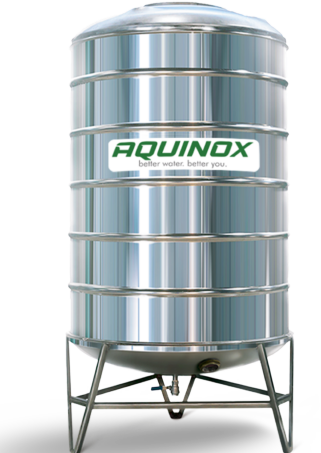
Hard water, characterized by high concentrations of calcium and magnesium ions, is a common challenge faced by many households and industries worldwide. While it might seem harmless at first, prolonged use of hard water can lead to numerous issues that affect health, household appliances, plumbing systems, and even industrial processes. Fortunately, modern solutions like stainless steel tanks offer effective ways to mitigate these problems, ensuring improved water quality and a better overall experience.
The Problem with Hard Water
Hard water, while not a direct health hazard, has far-reaching implications:
Scaling and Residue: One of the most noticeable effects of hard water is the buildup of scale on surfaces like faucets, pipes, and appliances. This happens when the minerals in hard water react with heat, leaving unsightly residues and reducing efficiency.
Skin and Hair Issues: Hard water can cause dryness and irritation to skin and hair, as it often leaves mineral deposits that strip natural oils, making them feel rough and lackluster.
Soap Efficiency: The minerals in hard water reduce the effectiveness of soap and detergents, resulting in wastage and difficulty in achieving a proper lather during cleaning.
Appliance Longevity: Appliances like washing machines, water heaters, and dishwashers face reduced lifespans due to the accumulation of scale in their components, affecting performance and increasing maintenance costs.
Industrial Complications: In industrial settings, hard water can hinder processes, damage machinery, and reduce energy efficiency, leading to increased operational costs.
How Stainless Steel Tanks Can Help
Stainless steel tanks have emerged as a reliable solution to address the challenges posed by hard water. Here’s how they make a difference:
Corrosion Resistance: Hard water accelerates corrosion in traditional storage tanks made from iron or other metals. Stainless steel tanks, being corrosion-resistant, ensure the longevity of water storage systems without compromising water quality.
Durability: Stainless steel is a robust material that withstands the impact of mineral-rich water, maintaining structural integrity for years. This reduces the need for frequent replacements, saving costs in the long run.
Hygienic Properties: Stainless steel tanks are easy to clean and sanitize, ensuring that hard water doesn’t lead to bacterial buildup. Their smooth surface prevents mineral deposits from adhering, maintaining consistent water purity.
Temperature Management: Stainless steel tanks are effective in preserving water temperature without reacting with the mineral content in hard water, making them suitable for both hot and cold water applications.
Supportive Infrastructure for Water Treatment Systems: Stainless steel tanks pair well with modern water treatment systems like water softeners. Together, they efficiently remove hardness-causing minerals from water, delivering cleaner and softer water for usage.
Conclusion
Hard water is a widespread concern that affects daily life and long-term efficiency. By investing in stainless steel tanks, households and industries can effectively combat the issues associated with hard water. These tanks not only provide a durable and hygienic solution but also pave the way for integrating advanced water treatment systems for enhanced water quality. Embracing stainless steel tanks ensures a sustainable approach to managing water hardness, contributing to healthier living and more efficient operations.


